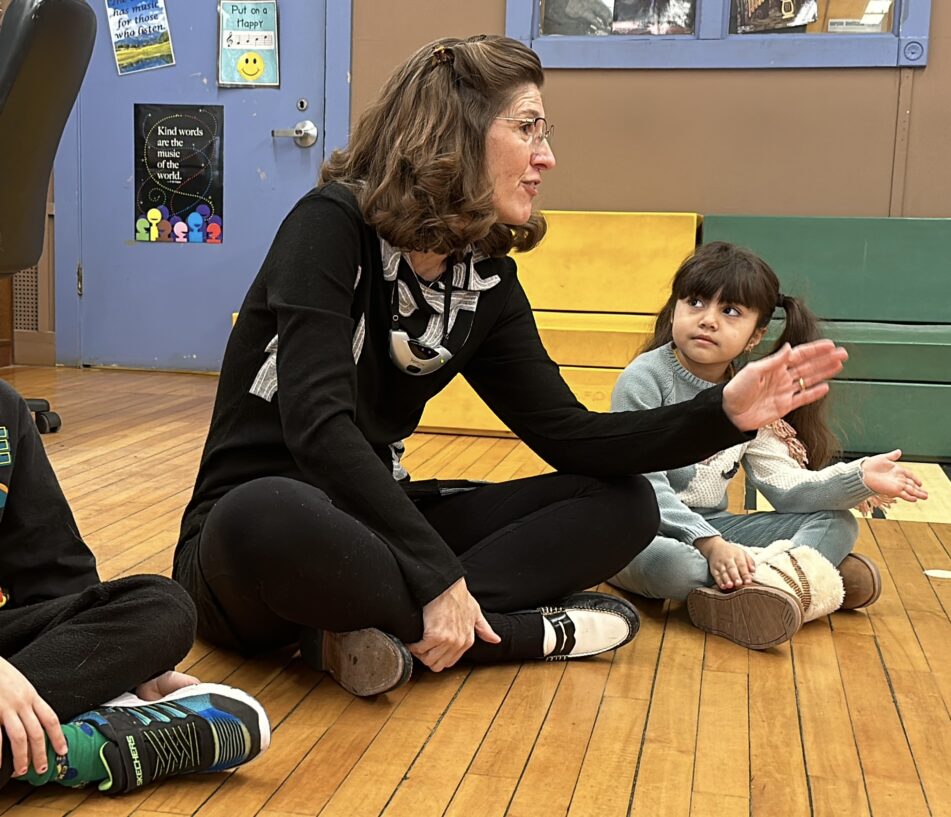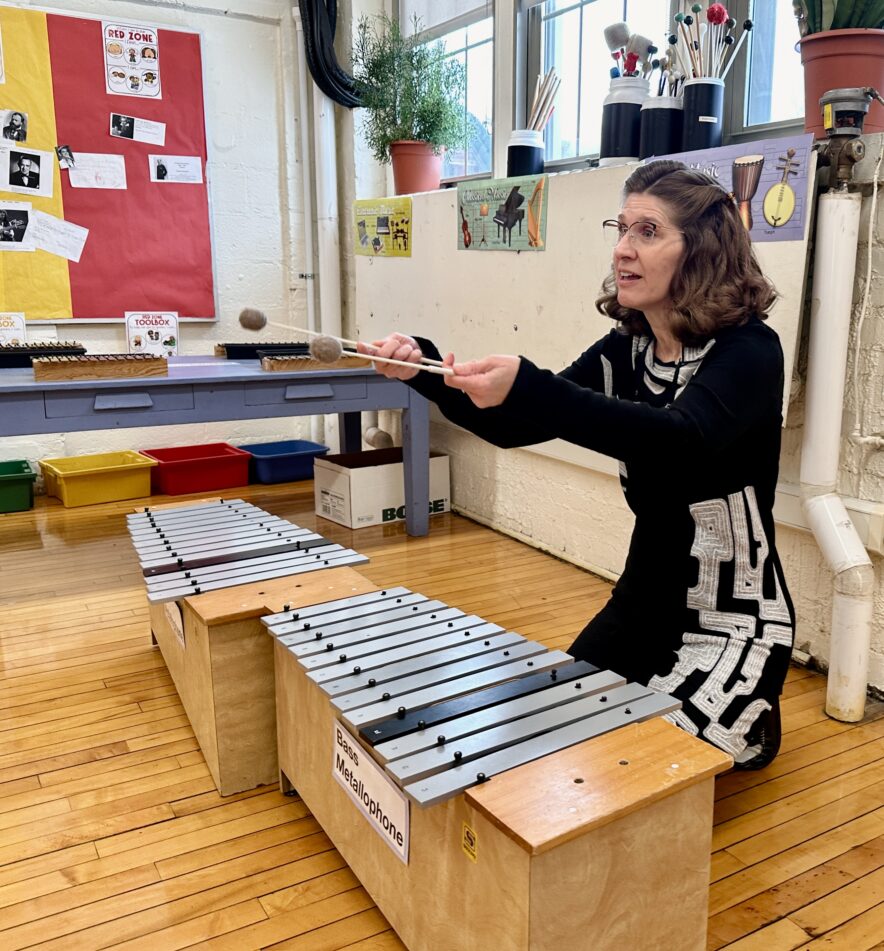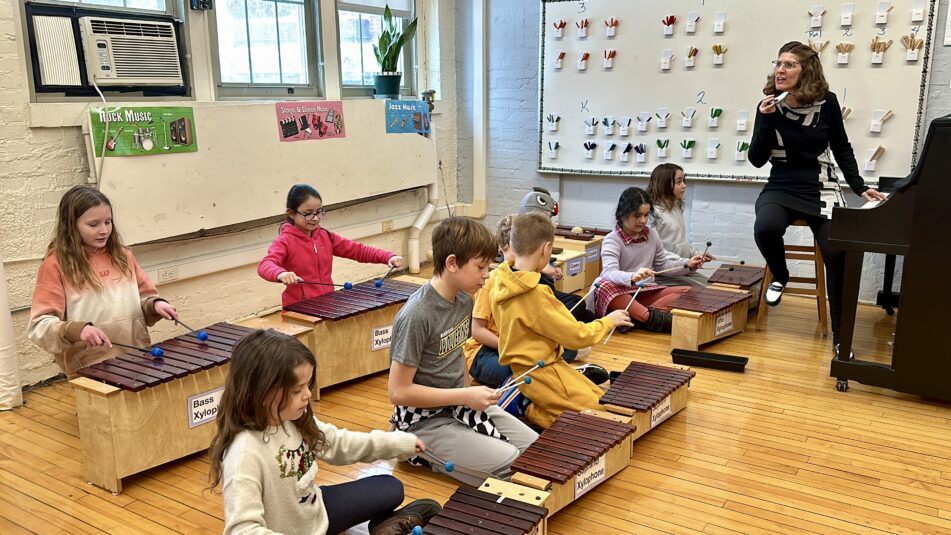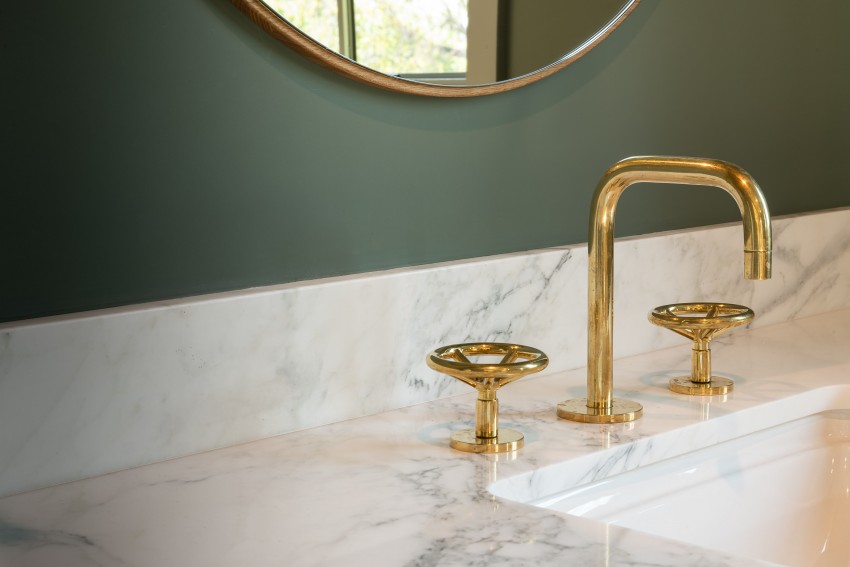By Jo Mathis / AAPS
Angell Elementary music teacher Katie Ryan raves about the “seriously exceptional” vocal music instruction Misty Noble provides students at Burns Park Elementary.
According to Ryan, Noble has a gift for “drawing students in and honoring their individuality while also making them feel invested in the musical team.”
Ryan describes Noble as not only an excellent teacher but also one of the most creative, generous and thoughtful colleagues she has ever known.
“Misty has spent countless hours organizing, updating, and contributing to our elementary vocal music drive—a Google folder in which we share lessons and ideas,” says Ryan. “Misty is always thinking of things that might help colleagues and benefit AAPS students. Misty is also the first to check in on us if we are ill or struggling. She is also the first to cheer on a success, both inside or outside of the classroom.”
Noble grew up in rural Upper Sandusky, Ohio, where her parents and sister and brother-in-law still live. She earned her bachelor of music from Miami University in Oxford, Ohio, and her M.MEd. from the University of Michigan. Noble has dedicated 34 years to teaching mostly elementary general music, with some middle/high school choral work. She taught in the Vandalia-Butler City School District in Ohio, the South Redford School District, and Dexter Community Schools before 2007, when she joined the staff at AAPS, teaching at Logan until 2012, and then at Burns Park until the present.

Noble married her high school sweetheart Rick in 1991 and they now live in Chelsea, where Rick works as an engineer at General Motors. They have two daughters, Hannah and Gabrielle. Hannah, a University of Michigan and Johns Hopkins graduate, works in electrical engineering in California after meeting her fiancé in the U-M Marching Band. Their younger daughter Gabrielle, a Michigan State graduate who sang in the MSU Women’s Choir, works in event coordination in the hospitality industry in Chicago.

In her free time, Noble enjoys yoga, reading, hiking, traveling, volunteering for non-profits, and music.
How did you get interested in music and teaching?
My sister and I were destined to be educators. Our mother is a retired high school English, Speech, and Theater educator and counselor. From an early age, we were inspired by our m
other’s commitment to the “No Higher Calling than a Teacher” mentality. Our family values public education. My musicality was supported by many along the way but to this day, there is nothing compared to making music with my dad.
Why did you want to work for Ann Arbor Public Schools?
I was attracted to the high value of education, diversity, and the fine arts in the Ann Arbor community as well as the opportunities to grow personally and professionally.
Describe an average workday.
Exercise, reflection, commute. Arrive one hour before school starts to prep for the day. Instruct 9-10 classes. Commute. Teach privately until 6 p.m. Dinner. Email, school planning, non-profit work, evening walk with husband, maybe a TV show with a needlework project, maybe a book chapter. Rinse and repeat.

What’s the happiest part of your workday?
The moment of aww or hush across a class when they put all the individual pieces together to create a cohesive ensemble. The sense of magic, surprise, and accomplishment compares to nothing else.
Favorite podcasts, websites, apps:
The Moth, TED Radio Hour, Hidden Brain with Shankar Vedantam, Wiser Than Me with Julia Louis-Dreyfus, Ten Percent Happier with Dan Harris, The Happiness Lab with Dr. Laurie Santos, This American Life, Freakonomics Radio.
We couldn’t live without Spotify and our Sonos system in our home.
Was there a teacher who had a particularly strong influence on your career? If so, what did you learn?
As a sophomore in high school, my private piano lesson teacher wanted me to prepare for college auditions with Joanne Hopper at Ohio Wesleyan University in Delaware, Ohio. I broke my finger playing volleyball and was relieved because I was scared to go. When I healed and began lessons as a junior with Ms. Hopper, I saw what I was missing. I am sad I did not have that time with her. She was an amazing person and musician. Her influence: always build up the individual measuring only on their personal growth; always start with the positive, it helps the hard go down easier; always have a relationship with your student to tap into the analogies that will ignite them. She had an uncanny, calm way of making you want to be the best version of yourself.
You have mentored many student teachers over the years. Why is this important to you?
So many people were beautiful mentors along my life’s journey that I feel obligated to do that for others. I, in turn, learn from the talented, eager, hopeful U of M student teachers that have walked through my door over the years. It is exciting and rewarding to be a part of the career paths of these young musicians who have become educators, performers, composers, etc.
When did you start the tradition of learning about the local culture when traveling to a new location and finding a book or song about the area to bring back to Burns Park?
In my family, our daughters joke that if there was a problem or a question, we always found a book that applied. When one cannot travel, books can bring the world to you. Literature is a huge inspiration for the creative work in our music-making class. I cannot help but bring a book back from a vacation to share with students. It builds relationships and opens doors. Understanding someone else’s story and music is a step toward better communication and appreciation of differences.
Why did you begin a new way to start the year in specials with students this year? How did it go?
We had the good fortune of administrative support to try something new with the launch of our 2023-24 school year. Our specials staff and our Office of Special Education (OSE) staff met every day with every grade level for a whole grade assembly and recess. During assembly time, each day a different area presented a hands-on activity that encouraged the building of community through music, art, theater, media, physical education, and social-emotional training. At recess time, adults structured games and free play that modeled the expectations of the playground. For the special area teachers, it helped immensely to build relationship with new younger students. Instead of learning how to operate in five different environments, they were learning who we were and how to communicate. Their arrival in our rooms the following week was better than any other year. Many classroom teachers appreciated a whole grade level planning each day for the first week. The only mixed feedback was that older students needed to get into a routine on day one and that our communication with classroom teachers about the assembly agendas could improve. I think it is an idea to explore further.
How is teaching different from the way you imagined it would be?
I do not think I could have even imagined all the technological advances/ tools in delivering instruction. My career started with no email and record players!
What advice would you give to a first-year teacher?
Find the people who build you up personally and professionally. Each day take lunch. Don’t forget to carve out personal time.
What’s the best compliment anyone could give you?
Compliments that I have appreciated:
“You hold all students to a high standard and you make it fun.”
“You have made my child feel seen and valued.”
“I can’t believe my child did that performance. You made them feel safe, proud, and confident.”
What do you wish everyone realized about the work of a teacher?
Teachers are some of the most creative people I know. Helping students become resilient, motivated, and skilled life-long learners is their motivator. If teachers were unleashed to make the decisions for education, I believe there would be incredible, positive results.








